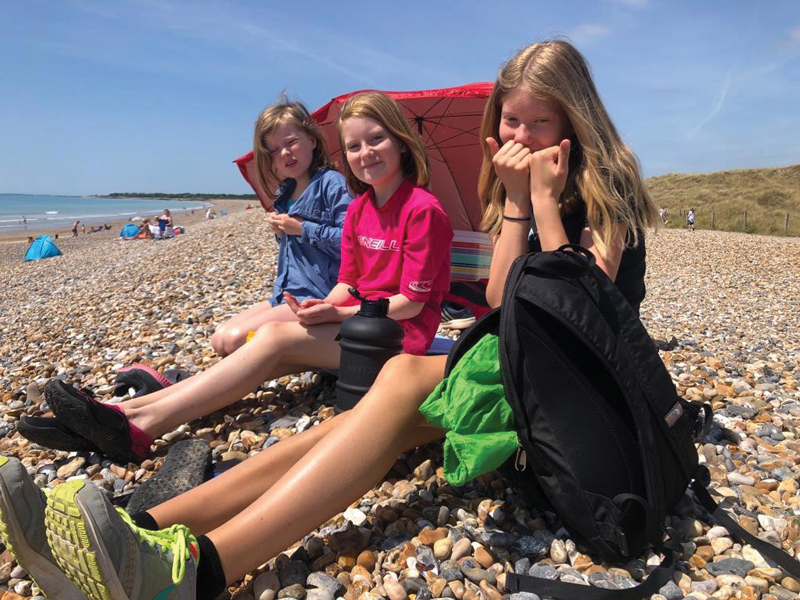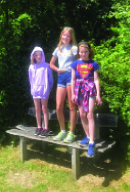
by Sally-Ann Makin
Potter’s Houses Nursery Settings and
Makin Connections – Family Consultancy
Families eh? Big ones, small ones, ones with just animals? All shapes and sizes have their challenges and we share reels and funny memes about the dynamics and we talk and compare stories about the trials and tribulations. But rarely do we talk (unless in our safe coven of non-judgemental friends) about just how hard it is to blend two families and have harmony. Not just hard, it’s almost impossible. I’m yet to speak to a parent of a blended family who finds it as breezy and enriching as they would like the world to think.
Let’s start with parenting styles. These are very much based on a combination of what you’ve learned from your own upbringing, the parent pals you keep, and your own personal beliefs. Very rarely will they align with your partner’s parenting style – this is where it gets tricky. When you raise a child from birth together, you only have each other to bounce off and you navigate parenting together (if you’re lucky enough to have a supportive partner) and you learn about your baby, who is equal parts of you both, together. When you blend a family those values and ideals you’ve raised your children with, will be different to those your new partner has raised their children with, and then we have potential conflict. Before you blend your children, you probably have this romantic idea that because you love each other and you both understand what it’s like to bring up children from a broken home, that you’ll be understanding and supportive at all times. Until their child isn’t very nice to your child and your mama-bear instinct kicks in, and all of that understanding goes out the window. Because no matter how much you love and adore your new partner, your babies are first and foremost your priority – and they’ve already been through enough. Sounding familiar?
So, how do we get past those tricky times where nobody wants to compromise and none of the children seem to like each other? You’re dealing with children who are naturally devious and intrisically selfish and competitive and potentially damaged by their previous experiences. Albeit, often lovely children with good manners who are well-raised and loved – but they can’t be perfect all the time. How do you learn to love someone elses children, who you’re still getting to know, who have so much of someone else in them that it’s hard to see past the flaws that you naturally ignore in your own children? How do you make everything fair and equal when they are different ages and have different abilities?
My husband and I have six children between us, one of which is ours together and I’m telling you it’s a never ending struggle to make sure everyone is looked after emotionally, physically, physiologically and mentally while ensuring that our new, and still in the fictional honeymoon period marriage, doesn’t suffer. Oh and don’t forget we need to run our various businesses and keep a house and make time for friends and extended family. It’s not what you see in the movies, it’s graft and it has nearly broken us a thousand times. We agree on a lot of things, and without wanting to sound too biased, we do genuinely have a lovely bunch of children who for the most part get on well and in comparison to many we are really fortunate. But that doesn’t mean anything about it comes easily and we are often exhausted.
I have a little ‘how to’ that seems to be working for us though and I’m going to share it with you in the hope that it can support more families to blend.
1 Be reasonable in your expectations of all the children regardless of age or background. Being fair and equal won’t work because for children nothing is ever fair and they’re always hard done by, so be reasonable instead. Set achievable goals for behaviour expectations, allow their feelings and responses to change and be heard even if you don’t like what you’re hearing. You have one shot at this.
2 Be understanding – put yourself in their shoes, get down to their level if they are young and try to imagine what their life feels or looks like, maybe it’s not what you thought.
3 Don’t compare – I know, that’s insanely hard! But it’s so important to understand that all children are not the same. My nine year old views the world very differently to my ten year old and they’ve had matching upbringings. Now imagine how differently my 15 year old stepdaughter sees things and we can no longer expect the same from them all.
4 Be affectionate – sometimes it’s hard to give a child who isn’t used to affection a big cuddle but as awkward as they might find it, they need it. Physical touch supports the release of endorphins – the happy hormone – as well as being a strong love language.
5 Priortise your marriage – if the children are all safe and healthy as your paramount focus then make your marriage a priority – make date nights happen no matter how tired you are, stay up later than the children, even if it’s half an hour to finish a conversation, have things in place that model to the children your authority and union in a gentle way. My husband and I have ‘a dessert club’ so every evening we sit down together with a cup of tea and a dessert, that we don’t have to share because they’ve had their own, and actually we are adults so we can! Be united, back each other up and don’t ever let the children think they’re winning!
Model what a healthy, loving and secure relationship looks like so your children seek that in their future partner and not the previous examples that have been set. Love each other beyond all measure because you’re both finding it hard and one day when they all leave home and start their own lives you’ll be all each other have.
For more tips or just for a chat, we offer family mediation at Makin Connections – we can help you connect.
Sally-Ann runs Makin Connections, Garden of Eden Preschool, Potters House Preschool and Blossom and Bloom Day Nursery.
For more information please contact her at sallyann@makinconnections.co.uk or call 07939 620934



















